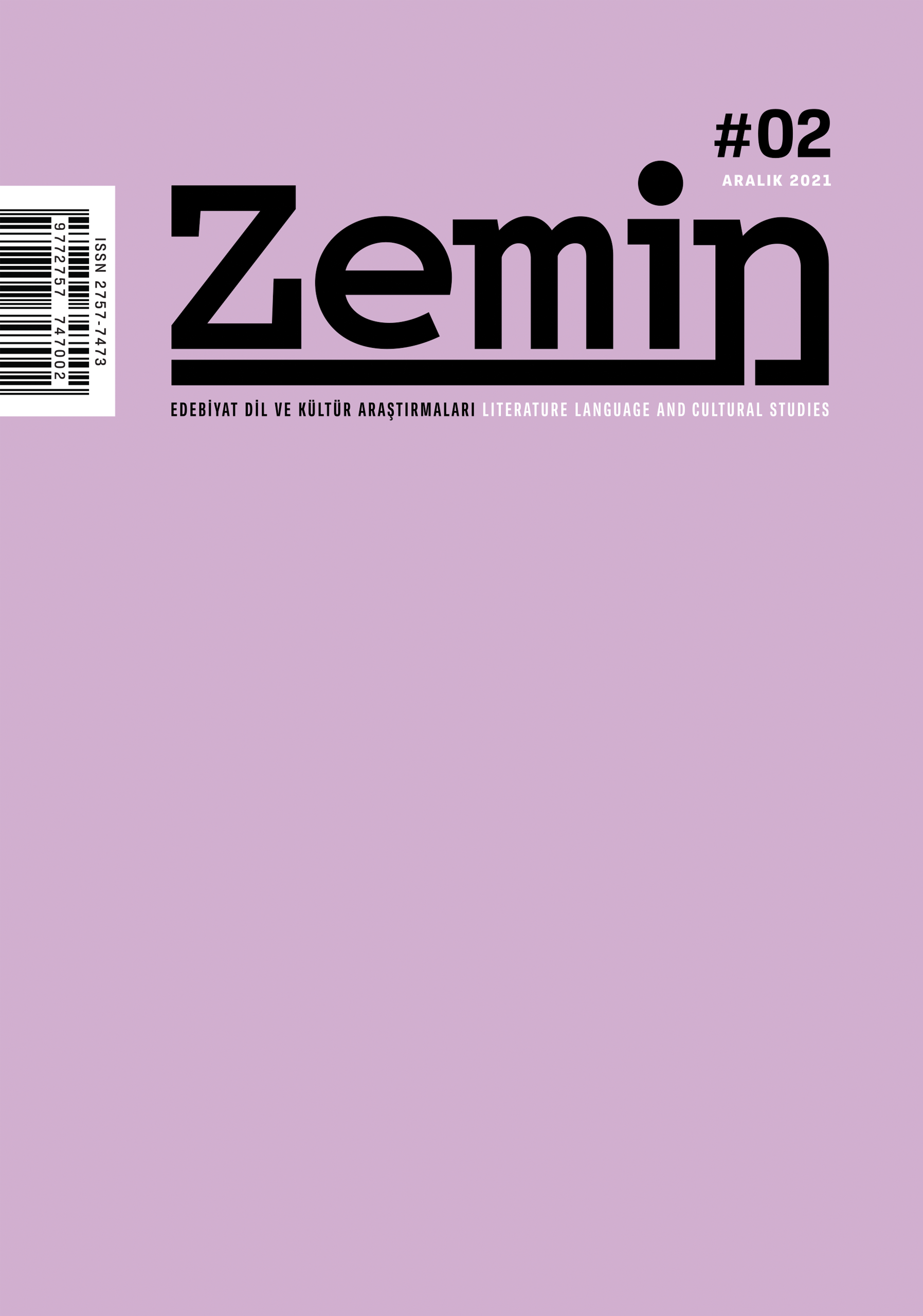Gender and the Construction of Female Subjectivity in Narrative: A Feminist Narratological Reading of Muallime
DOI:
https://doi.org/10.5281/zenodo.8017160Keywords:
Emine Semiye, serial novel, feminist narratology, genderAbstract
Muallime was serialized by Emine Semiye in the supplement Hanım Kızlara Mahsus in Hanımlara Mahsus Gazete between March 3, 1899 – May 2, 1901. Muallime gives messages on subjects such as women’s rights, education, and pedagogy. These messages are underlined in the main character, Bihbûde, who is presented as an ideal Ottoman woman because she has a modern understanding of education and culture while remaining loyal to her traditions. Muallime, where varied women’s narratives intersect, includes various side stories about the past and lives of other female characters in addition to Bihbûde’s story. Within this multila-yered structure of the novel, a feminist approach to narratology provides insights into which women’s discourses get constructed on narrative strategies. Examining structural elements such as the writer, narrator, reader, and narrative characters that make up the narrative, femi-nist narratologists have focused on literary texts produced by women by focusing on gender indicators. In my analysis of Muallime, I evaluate the function of gender in the structuring of the narrative by following a feminist narratological method. By subjecting the narrative to reading with a focus on the narrator and the reader’s gender, I present a framework for the construction of women’s discourse in the narrative.
References
Altug, Fatih. “Hissiyatı Tercüme Etmek: Fatma Fahrünnisa’nın ‘Dilharab’ Romanında Tecrübe ve Duygulanımlar.” Yeni Türk Edebiyatı, s. 16 (2017): 8-29.
Booth, C. Wayne. Kurmacanın Retorigi. Çeviren Bülent O. Dogan. Istanbul: Metis, 2010.
Bora, Aksu. Kadınların Sınıfı: Ücretli Ev Emegi ve Kadın Öznelliginin In#ası. Istanbul: Iletişim, 2010.
Dervişcemaloglu, Bahar. “Feminist Anlatıbilim Üzerine.” Yeni Türk Edebiyatı, s. 16 (2017): 61-79.
Dervişcemaloglu, Bahar. Anlatıbilime Giriş. Istanbul: Dergâh, 2014.
Emine Semiye. Muallime. Hazırlayan Hazel Melek Akdik. Istanbul: Turkuvaz, 2021.
Gürbilek, Nurdan. “Erkek Yazar, Kadın Okur.” Kör Ayna, Kayıp "ark: Edebiyat ve Endişe. Istanbul: Metis, 2010.
Irzık, Sibel. “Öznenin Vefatından Sonra Kadın Olarak Okumak.” Kadınlar Dile Düşünce: Edebiyat ve Toplumsal Cinsiyet. Derleyenler Sibel Irzık ve Jale Parla. Istanbul: Iletişim, 2004.
Jahn, Manfred. Anlatıbilim. Çeviren Bahar Dervişcemaloglu. Istanbul: Dergâh, 2012.
Karaca, Şahika. “Emine Semiye: Hayatı-Fikir Dünyası-Sanatı-Eserleri.” Doktora Tezi. Erciyes Üniversitesi, 2010.
Köroglu, Erol. “Aşırılık, Suç ve Düzeni (Tefrika) Romanda Yazmak: Dürdane Hanım Örnegi.” Istanbul Üniversitesi Edebiyat Fakültesi Türk Dili ve Edebiyatı Dergisi, s. 47 (2014): 127-170.
Kurnaz, Şefika. Osmanlı Kadın Hareketinde Bir Öncü: Emine Semiye - Hayatı, Sanatı, Fikirleri. Istanbul: Timaş, 2008.
Lanser, Susan S. “Sexing the Narrative: Propriety, Desire, and the Engendering of Narratology.” Narrative, s. 3 (1995): 85-94.
Page, Ruth E. “Feminist Narratology? Literary and Linguistic Perspectives on Gender and Narrativity.” Language and Literature, s. 12 (2003): 43-56.
Toska, Zehra. “Haremden Kadın Partisine Giden Yolda Kadın Dergileri, Gündemleri ve Öncü Kadınlar I.” Defter, s. 21 (1994): 117-142.
Downloads
Published
How to Cite
Issue
Section
License
Copyright (c) 2022 Hazel Melek Akdik

This work is licensed under a Creative Commons Attribution 4.0 International License.



